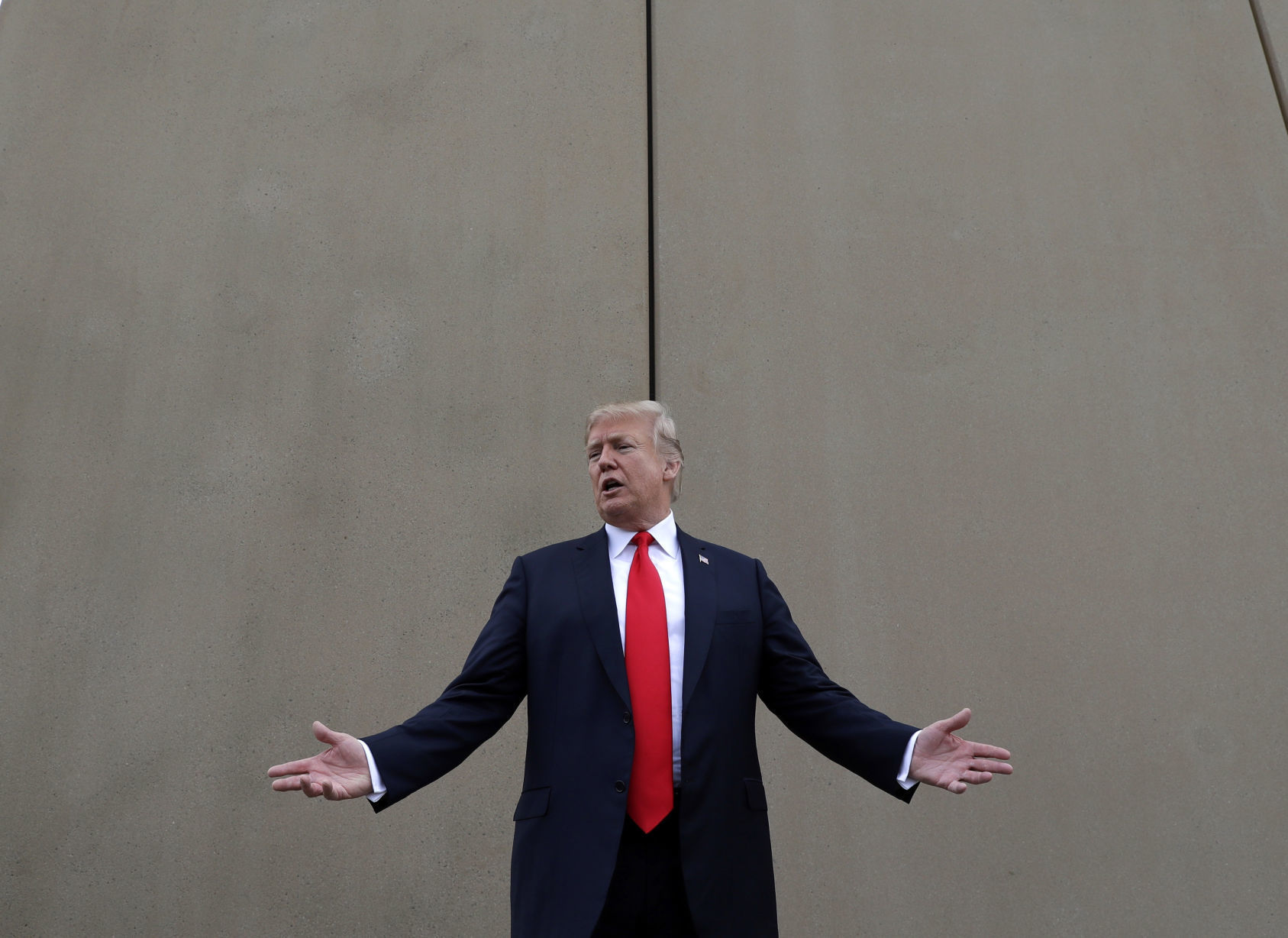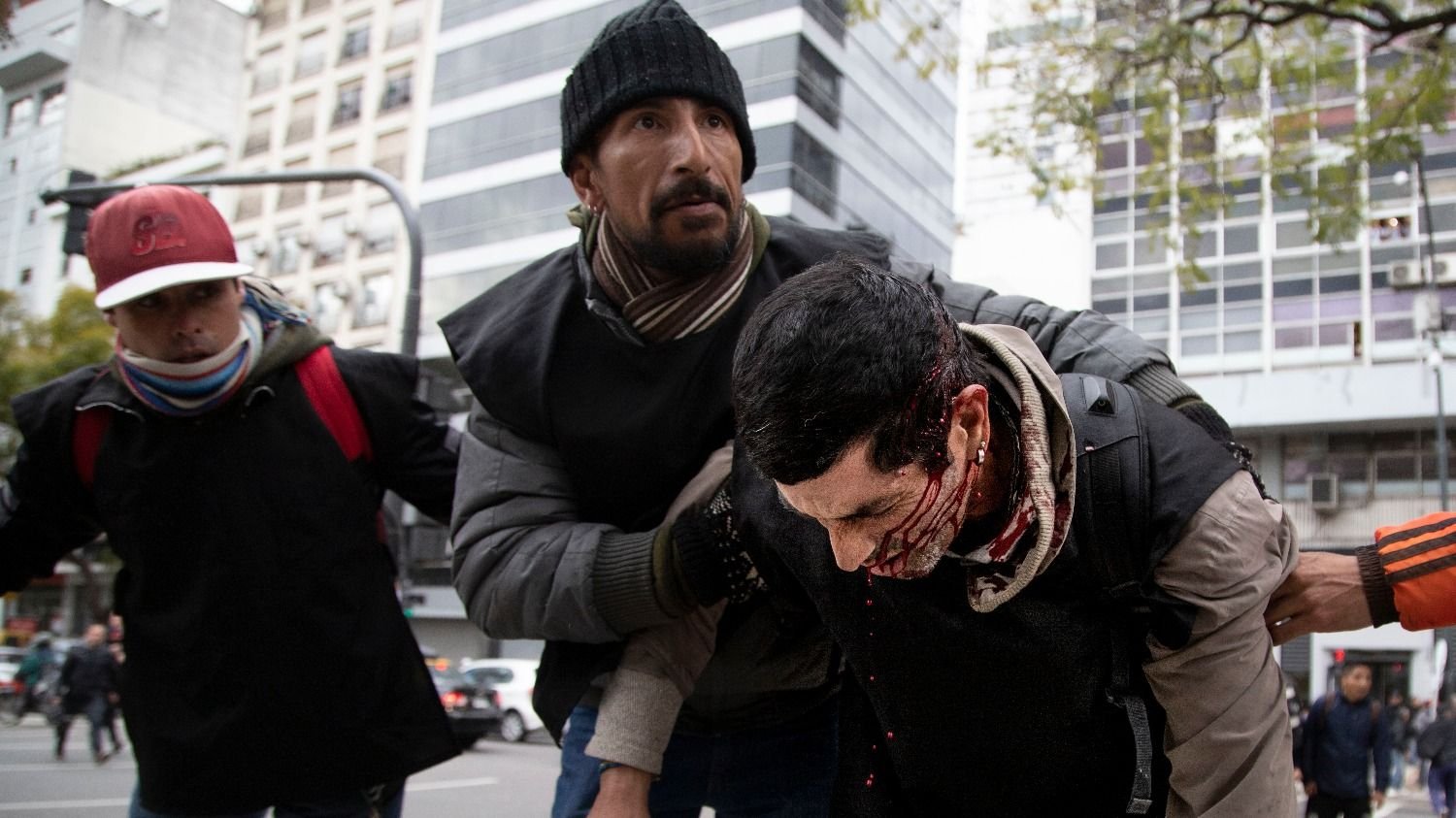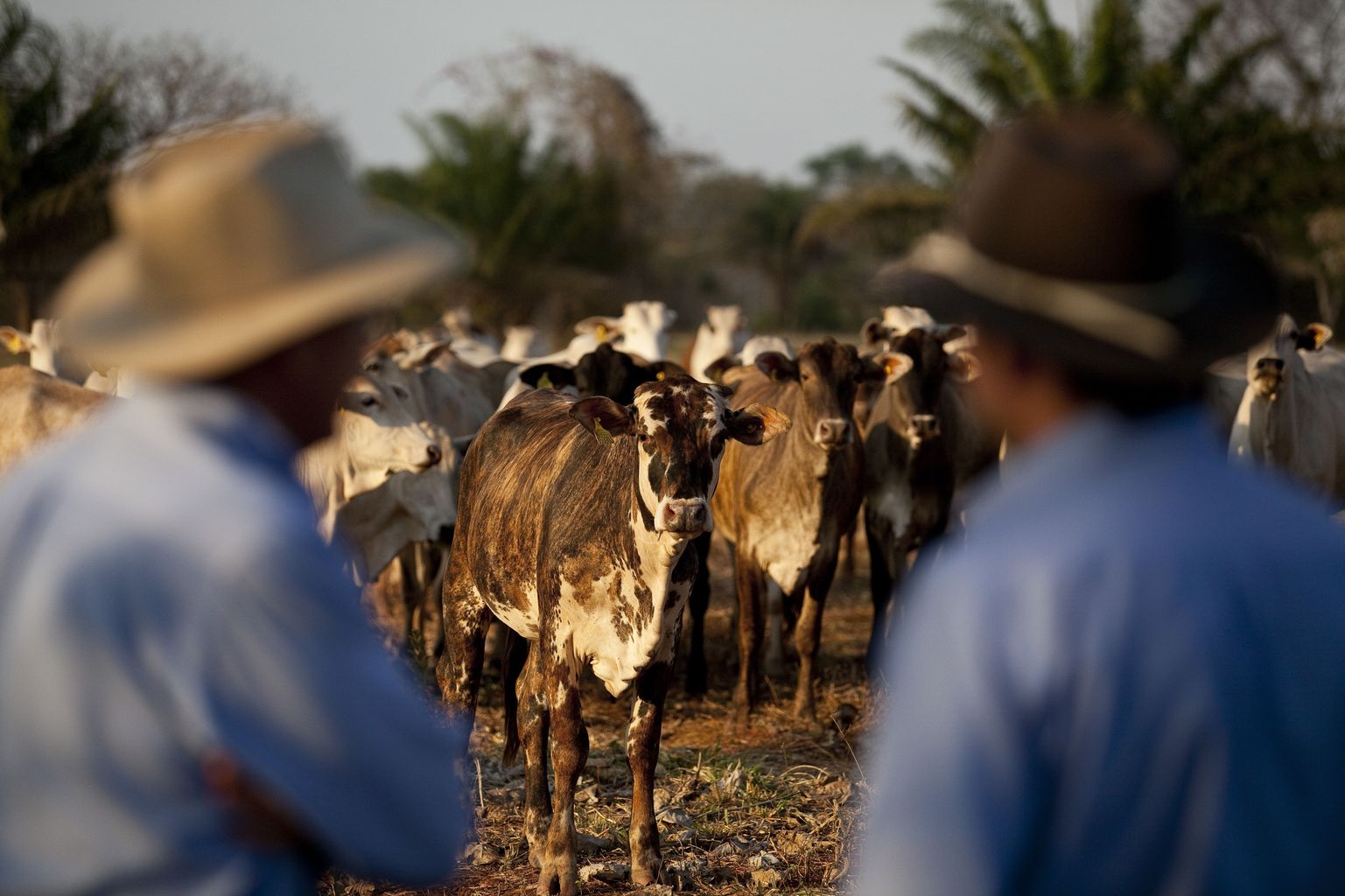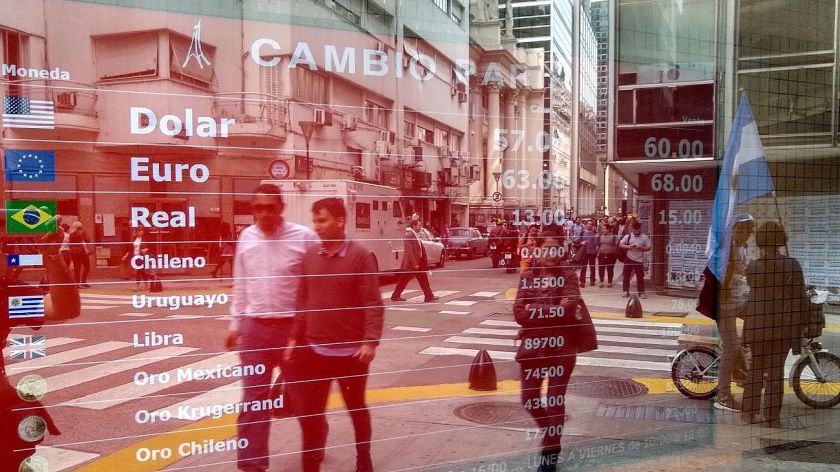peppertree
peppertree's JournalPentagon puts brakes on 3 border barrier projects because of cost
Source: Politico
The Defense Department is no longer moving forward with three border barrier projects in California and Arizona, according to a court filing Monday.
The move is a reversal of an earlier Pentagon authorization for about 20 miles of fencing, lighting and other border infrastructure that would have used $2.5 billion in funds redirected from a counter-drug fund.
That authorization, announced Aug. 27, was based on what was then determined to be "lower-than-expected contract costs." But the Defense Department revealed in the Monday filing that the department would not be able to cover the costs of the project.
The Defense Department initially authorized the funding after the U.S. Army Corps of Engineers determined that it would likely be able to afford the projects using the counter-drug funds; but the Army Corps said it would not know the full financial situation until later in the fiscal year.
Read more: https://www.politico.com/story/2019/09/16/defense-department-border-wall-projects-1499466
Trump and a prototype of his much-touted border wall in San Diego last year.
The president declared a national emergency to divert the money from the armed forces - but the Pentagon has begun to resist the increasingly brazen diversions of funds.
On late night show, Stephen King says it's time for someone new to replace Susan Collins
Maine author Stephen King made an appearance on “The Late Show with Stephen Colbert” to promote his new book, “The Institute,” and took a jab at his senator, Susan Collins.
Host Stephen Colbert asked King about a recent tweet in which King said Collins “has to go.”
“Let’s put it this way,” King said when Colbert brought up the tweet. “Susan Collins has been there for about a thousand years and it’s time for somebody a little newer and somebody who’s got a little bit more of a liberal bend.”
This isn’t the first time King has voiced his opinion about Maine’s Republican senator. In July, King tweeted, “Susan Collins has buckled before the Trump idiocracy. Time for her to go.”
At: https://www.bostonglobe.com/metro/2019/09/12/late-night-show-maine-author-stephen-king-says-its-time-for-someone-new-replace-susan-collins/GVy1R5ICEkR1MrzX7jcdRI/story.html
Maine author Stephen King and his “Creepshow” senator, Susan Collins.
Argentina's opposition parties unite to call for 'Food Emergency' amid growing protests
Lawmakers from various opposition parties have formally presented a request for a special session in the lower house to discuss the declaration of a "Food Emergency" in Argentina.
Politicians from across the opposition agreed Monday to unify their legislative drafts on the topic into a single bill, in a bid to ensure that House Speaker Emilio Monzó will move forward with an emergency session.
A Food Emergency declaration, the first since 2002, would increase federal nutrition assistance spending by 50% over already budgeted figures, from 16 billion pesos ($275 million) to 24 billion pesos ($412 million) and would remain in effect until the end of 2022.
The bill, co-sponsored by 15 center-left legislators, reportedly has majority support in both houses of Congress - but may be vetoed by President Mauricio Macri, who has expressed opposition to the measure.
Macri, who's seeking re-election despite job approval of 25%, lost the first round on August 11 to center-left candidate Alberto Fernández by 16% and may lose the second round by at least 20% according to recent polls; Fernández has pledged to sign the bill should he be elected.
Macrisis
The legislative push follows days of demonstrations by social activists and labor unions.
A protest camp organized six days ago in front of the Ministry of Health and Social Development was violently dispersed by police today, leading to several injured protesters.
Activists regrouped this evening, however, and will continue their protest camp.
Poverty has increased since Macri took office four years ago - rising from an estimated 27% in 2015 to a projected 40% this year.
Amid 54% inflation, the National University of Avellaneda (UNDAV) estimates that hunger now affects 10% of the population - up from 4.8% in 2017 and 6.7% last year.
The FAO had declared chronic hunger in Argentina "erradicated" in 2015.
Socioeconomic conditions have worsened since the April 2018 collapse of a carry-trade debt bubble known locally as the "financial bicycle," which forced Macri to turn to the IMF for a record, $57 billion bailout.
"If there's a state of siege they should let us know," activist Eduardo Belliboni, who was injured in today's incidents, said, "because it should be declared against those ferreting the money out of the country - not against those asking for a plate of food."
At: https://www.batimes.com.ar/news/argentina/opposition-unites-to-call-for-food-emergency-session-amid-more-protests.phtml
An injured protester is assisted during today's violent dispersal of a protest camp in front of the Social Development Ministry.
Congressional opposition parties have joined calls by social activists to declare a "food emergency" in Argentina - the first since financial deregulation policies similar to Macri's led to the country's 2002 collapse.
Macri has indicated he'll veto the legislation.
H&M stops buying leather from Brazil over Amazon fires
Low-cost fashion retailer Hennes & Mauritz AB (H&M) said Friday it is suspending leather purchases from Brazil to make sure it is not supporting cattle farming that may be contributing to the fires in the Amazon rainforest.
The move by the Stockholm-based company follows a similar decision by the maker of Vans and Timberland shoes.
Some international investors are also trying to put pressure on the Brazilian government, which has been seen as too lax in its approach to protecting the rainforest.
Hennes & Mauritz AB said its temporary ban on leather from Brazil will remain in place “until there are credible assurances ... that the leather does not contribute to environmental harm in the Amazon.”
At: https://www.washingtonpost.com/lifestyle/handm-stops-buying-leather-from-brazil-over-amazon-fires/2019/09/06/360f40a4-d083-11e9-a620-0a91656d7db6_story.html
Cattle and their ranchers in the São Marcelo Ranch in Brazil's Mato Grosso state.
The São Marcelo Ranch in 2012 became the first in the world to earn Rainforest Alliance certification for sustainable cattle production.
Most other Brazilian cattle ranches, however, operate with little regard for either waterways or, if near the Amazon, the rainforest around them.
The powerful cattle lobby is believed to be behind far-right President Jair Bolsonaro's push to allow increased rainforest burning - leading to this year's Amazon fires crisis.
California becomes the first state in the nation to outlaw fur trapping
California has just become the first state in the nation to outlaw fur trapping.
The Wildlife Protection Act of 2019, signed by Gov. Gavin Newsom Wednesday, will prohibit the trapping of native animals including grey fox, coyote, beaver, badger and mink, along with the sale of their pelts, which often end up in foreign markets.
The new legislation will officially end an industry that lawmakers argued was too small and costly to regulate.
Only 133 trapping licenses were bought in California in 2017 according to the bill. Along with just four fur dealer licenses sold in the same year, just over $16,000 in revenue was generated for the state Department of Fish and Wildlife.
During the same year, 68 trappers killed more than 1,500 animals, among them, grey fox, coyote, beaver, badger and mink.
The pelts collectively sold for less than $9,000, a sum far beneath the costs accrued by the state to oversee the industry.
At: https://www.usatoday.com/story/news/politics/2019/09/04/new-california-law-protects-animals-being-killed-their-fur/2214791001/
Killed off: California's fur trade, a marginal industry that costs far more to regulate than it adds to the economy, has now been banned.
In a dramatic policy about-face, Argentina's Macri decrees currency controls
Amid the worst economic crisis in nearly two decades and facing a likely default, Argentine President Mauricio Macri announced strict currency controls.
Today's decree limits dollar purchases (though not account withdrawals) to $10,000 monthly, establishes a system of permits for corporate and banking purchases, requires exporters to sell dollar earnings locally, and curtails the use of 'spot settlement' transactions - a popular method of skirting the last period of currency controls (2012-15).
The new policy, which follows an August 28 decree delaying payments on as much as $101 billion of debt, marks a dramatic about-face for "pro-business" President Mauricio Macri - who was narrowly elected in late 2015 on promises to scrap similar currency controls enacted by his center-left predecessor, former President Cristina Kirchner.
The unpopular measure, enacted by Mrs. Kirchner in response to a widening current account deficit as well as a loss of access to global credit markets due to a highly-publicized "vulture fund" dispute, depressed real estate sales (though not home values) and led to sharply lower growth.
Macri quickly deregulated finance and cut corporate (particularly export) taxes in a bid to attract foreign investment and revive sluggish growth.
Instead, public foreign debt more than doubled to $200 billion in just three years as dollars were borrowed to finance a carry-trade debt bubble known locally as the "financial bicycle" - by which outsized yields on peso-denominated notes were dollarized and wired offshore.
The April 2018 implosion of the "bicycle" effectively shut Argentina out of global credit markets, forcing Macri to seek a record, $57 billion bailout from the IMF.
The peso has since lost 68% of its value, with GDP down 6.9% despite a record harvest this year.
The prospect of account withdrawal limits similar to ones imposed in late 2001 that led to riots, have over the past two weeks prompted the withdrawal of $3.5 billion from banks and the loss of $12 billion in Central Bank reserves.
Wednesday's debt payment "reprofiling" has already strained finances at the social security fund, mutual funds, and many corporations - all of which earned sizable interest income from the affected short-term treasuries.
"There has never before been a default on peso-denominated debt," Claudio Belocopitt, CEO of Argentina's largest private hospital chain, Swiss Medical Group, noted.
"Reprofiling is just a new word they invented to keep from admitting they stole it all."
At: https://translate.google.com/translate?hl=en&tab=wT&sl=es&tl=en&u=https%3A%2F%2Fwww.pagina12.com.ar%2F215774-macri-termina-con-control-de-cambios
Pedestrians walk along a reflection from a currency exchange in Buenos Aires' financial district.
Today's currency control decree marks a dramatic policy reversal from the "pro-business" Macri, who widely deregulated finance within days of taking office in late 2015 in a bid to turn Buenos Aires into "another Panama City."
Instead, an estimated $75 billion left the country by using borrowed dollars to cash in outsized interest yields in pesos and then offshore the dollarized proceeds - a heist known locally as the "financial bicycle."
A previous financial bicycle bankrupted Argentina in 1981, after the dictatorship at the time enacted similar policies.
Argentina's credit rating cut to Selective Default by S&P
S&P Global Ratings cut Argentina’s foreign- and local-currency credit ratings to “selective default” after Argentine President Mauricio Macri issued a decree delaying payments on as much as $101 billion of debt.
“Following the continued inability to place short-term paper with private-sector market participants, the Argentine government unilaterally extended the maturity of all short-term paper on Aug. 28,” the ratings firm said in a statement.
“This constitutes default under our criteria.”
The downgrade was temporary, however. Since new terms for the short-term debt came into effect immediately, S&P considers the default “cured” and will raise Argentina‘s long-term sovereign credit rating to CCC- on Aug. 30, it said.
The government will meanwhile postpone $7 billion of payments on short-term local notes held by institutional investors this year and will seek the “voluntary reprofiling” of $50 billion of longer-term debt, Economy Minister Hernán Lacunza said.
Hot potato
The rescheduling raised concerns locally over its effect on the national social security fund (FGS) and mutual funds, which have billions in short-term notes affected by postponed payments.
Morgan Stanley estimated Argentina needed $12.9 billion for repayments on bills and bonds in the last four months of the year. Most of those payments have now been pushed back to 2020 - when a new administration led by center-left Peronist Alberto Fernández is expected to be in office.
Tierra del Fuego Governor Rosana Bertone described the situation Fernández is likely to inherit in December as a “hot potato.”
Lacunza will also start talks over repayments on $45 billion borrowed from the IMF as part of a record, $57 billion bailout granted on June 2018.
Argentina has been largely cut off from global money markets since the April 2018 implosion of a domestic carry-trade debt bubble, promoted by Macri and known as the “financial bicycle.”
The peso has since lost two-thirds of its value, with GDP down 6.9% despite a record harvest.
At: https://www.bloomberg.com/news/articles/2019-08-29/argentina-s-rating-cut-to-selective-default-by-s-p
A cyclist rides down a street in the financial district in Buenos Aires.
The collapse of a $60 billion carry-trade debt bubble known locally as the “financial bicycle” led to Argentina's being mostly shut off from global bond markets - and what's widely considered a “disguised default.”
In effect, an inability to service its $200 billion public foreign debt (which more than doubled in just 3½ years) disguised only by $45 billion in IMF loans since June 2018.
The bailout was reportedly granted at the insistence of U.S. President Donald Trump, who shares both an ideological affinity and a 35-year friendship with Macri.
Sting condemns Brazil's handling of Amazon fires: 'We will all suffer the consequences'
Sting shared a statement condemning the Brazilian government’s response — or lack thereof — to the devastating fires raging across the Amazon rainforest.
In a note posted on Facebook, the musician heavily criticized President Jair Bolsonaro, a far-right climate change skeptic who has expressed contempt for the indigenous people of Amazonia, opened up the Amazon to deforestation and commercial exploitation and downplayed the global reaction to the ongoing fires.
As The New York Times reported, Bolsonaro also rejected a $22 million aid package to help fight the fires that French president Emmanuel Macron announced at the G-7 meeting.
Sting is a longtime advocate of rainforest preservation, having launched the Rainforest Foundation Fund in 1987, which has worked closely with indigenous communities in Brazil and across South America to protect their homes.
"Surely it is enlightened self-interest for Mr. Bolsonaro to understand and accept this," Sting wrote, referring to the need to protect the Amazon. "We urge him to rethink his policies and change his actions and his incendiary rhetoric before it is too late."
"This is no time for fiddling; the world is burning."
At: https://www.rollingstone.com/music/music-news/sting-brazil-forest-fires-amazon-bolsonaro-877207/
Sting and an Amazonian tribal leader during a 2009 protest against a proposed dam in the area.
He noted this week that "we are fast approaching the tipping point where the fires will continue to burn and cannot be put out."
Matthew McConaughey is now a college professor
Matthew McConaughey is taking his Oscar-winning expertise to higher education.
The University of Texas at Austin announced on Wednesday that McConaughey was appointed as a "professor of practice" at the Moody College of Communications, joining the faculty of the Department of Radio-Television-Film, according to a press release from the university.
The 49-year-old actor has been a visiting instructor since 2015, co-teaching the Script to Screen film production class alongside faulty member Scott Rice. McConaughey shared his enthusiasm for the new title in a statement.
"It's the class I wish I would have had when I was in film school. Working in the classroom with these students gives me a chance to prepare them," he said.
"Making movies, turning words on paper into film, is both a science and art -- no matter the time or generation. The elements of truth and genuine joy for the process are timeless. That will always be our classroom focus."
At: https://www.msn.com/en-au/entertainment/celebrity/matthew-mcconaughey-is-now-a-college-professor-find-out-what-class-hes-teaching/ar-AAGtttJ
Alright-alright-alright! Matthew McConaughey joins the University of Texas as a professor at the Moody College of Communications' Department of Radio-Television-Film.
Facing default, Argentina's Macri seeks debt rescheduling
Amid the worst economic crisis in nearly two decades and facing a likely default, Argentine Economy Minister Hernán Lacunza today announced that his office will be seeking a partial debt rescheduling.
The re-scheduling would affect $57 billion in debt - much of which currently yields 75% interest in pesos or 7% in dollars.
No principal reduction - or "haircut" - was proposed. Instead, Lacunza is seeking to swap $7 billion in debt maturing within the next few weeks for debt payable within 6 months.
A "voluntary reprofiling" of $50 billion of longer-term debt will also be sought.
Argentina's $330 billion public debt has grown 50% in 4 years and now consumes 16% of the national budget.
The high yield on these notes had made them popular investments until Monday - when only 5% of $1.6 billion in maturing dollar-denominated 'Letes' were rolled over.
Because the proceeds are largely being dollarized and wired overseas, these maturities are contributing to a rapid depletion of Argentina's foreign exchange reserves - which fallen by over $10 billion in August to $58 billion.
Net reserves, however, have dwindled to $13 billion - well below this year's projected current account deficit of $20 billion, as a result of mounting foreign debt interest outlays.
International Macri Fund
Lacunza also mentioned the possibility of rescheduling $45 billion in IMF debt, most of which is due by 2023.
This debt is part of a record, $57 billion bailout granted to Argentina in June 2018 - reportedly at the insistence of U.S. President Donald Trump, who sought to boost re-election chances for right-wing President Mauricio Macri (a longtime personal friend).
The political motivation behind the bailout led local critics to refer to the IMF as the "International Macri Fund."
Macri was instead dealt a drubbing by voters on August 11, losing by 16% to center-left candidate Alberto Fernández.
Fernández has repeatedly called on Macri to reschedule Argentina's $200 billion foreign public debt - the most problematic type, as it can only be serviced in dollars or other hard currencies.
Back to the Future
The proposals drew comparisons to Argentina's infamous, July 2001 "Mega Swap."
The Mega Swap involved an exchange of 37 types of notes and bonds for longer-term, higher-interest bonds. The swap was accepted by most bondholders, and delayed up to $30 billion in payments but added $38 billion in additional interest payments in the out years.
The Mega Swap was a boon to banks seeking to unload Argentine bonds – but failed to stem the crisis or avoid a default just six months later.
Of the $82 billion in defaulted bonds that had to be restructured in 2005 (triggering a wave of holdout lawsuits), 60% were issued in the Mega Swap.
At: https://translate.google.com/translate?hl=en&tab=wT&sl=es&tl=en&u=https%3A%2F%2Fwww.baenegocios.com%2Fpolitica%2FGobierno-anuncia-un-canje-de-deuda-para-estirar-los-vencimientos-20190828-0039.html

Argentine officials (left) discuss today's debt rescheduling proposal with visiting IMF officials.
Today's announcement, if enacted, will postpone some short-term, high-interest obligations until next year - when a new administration is expected to be in office.
Javier Milei, a libertarian Argentine economist, noted that "if a government fails to repay debts at the agreed-upon time and terms, and if, moreover, it swaps the debt at rates other than market rates, it's a selective default."








